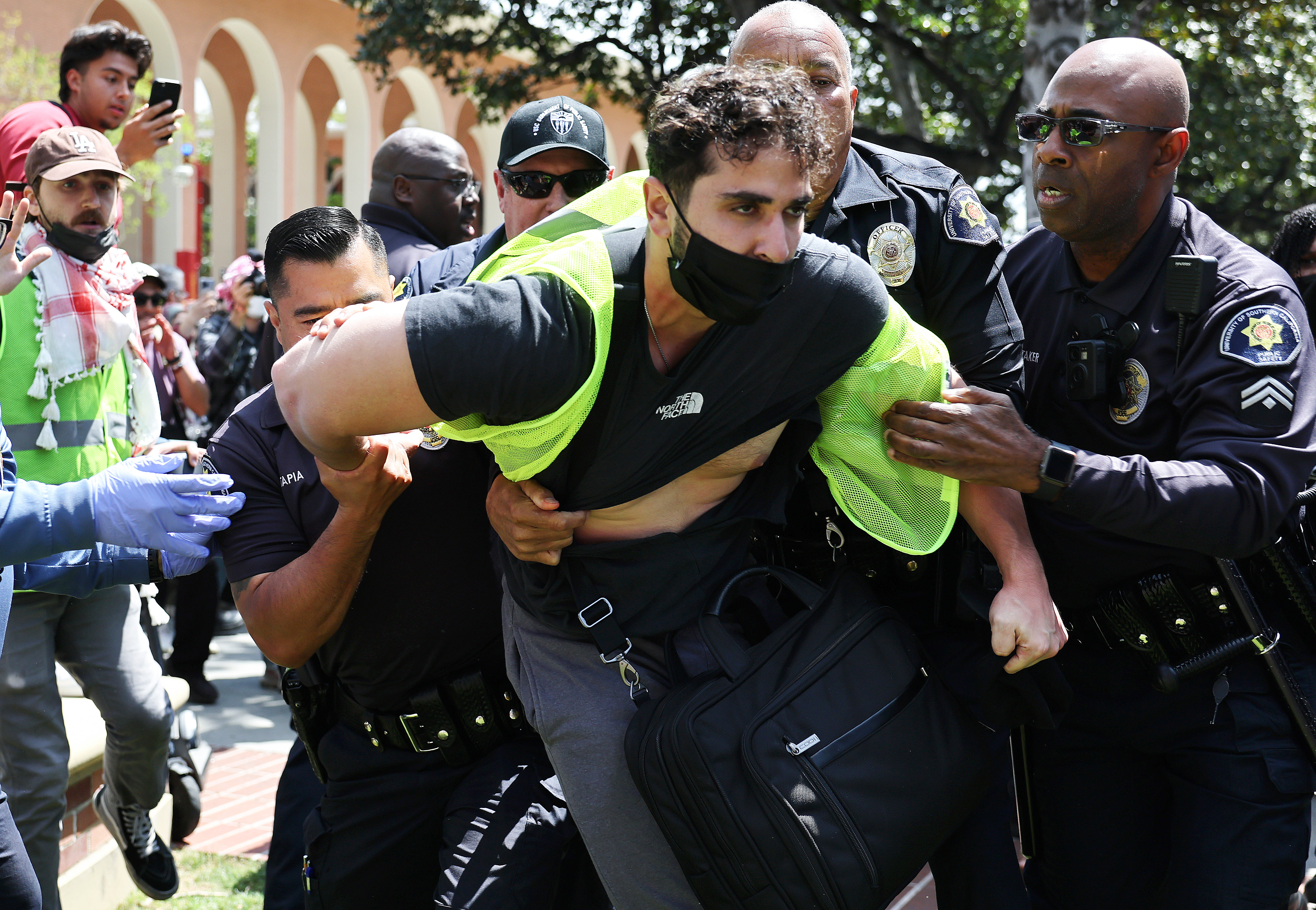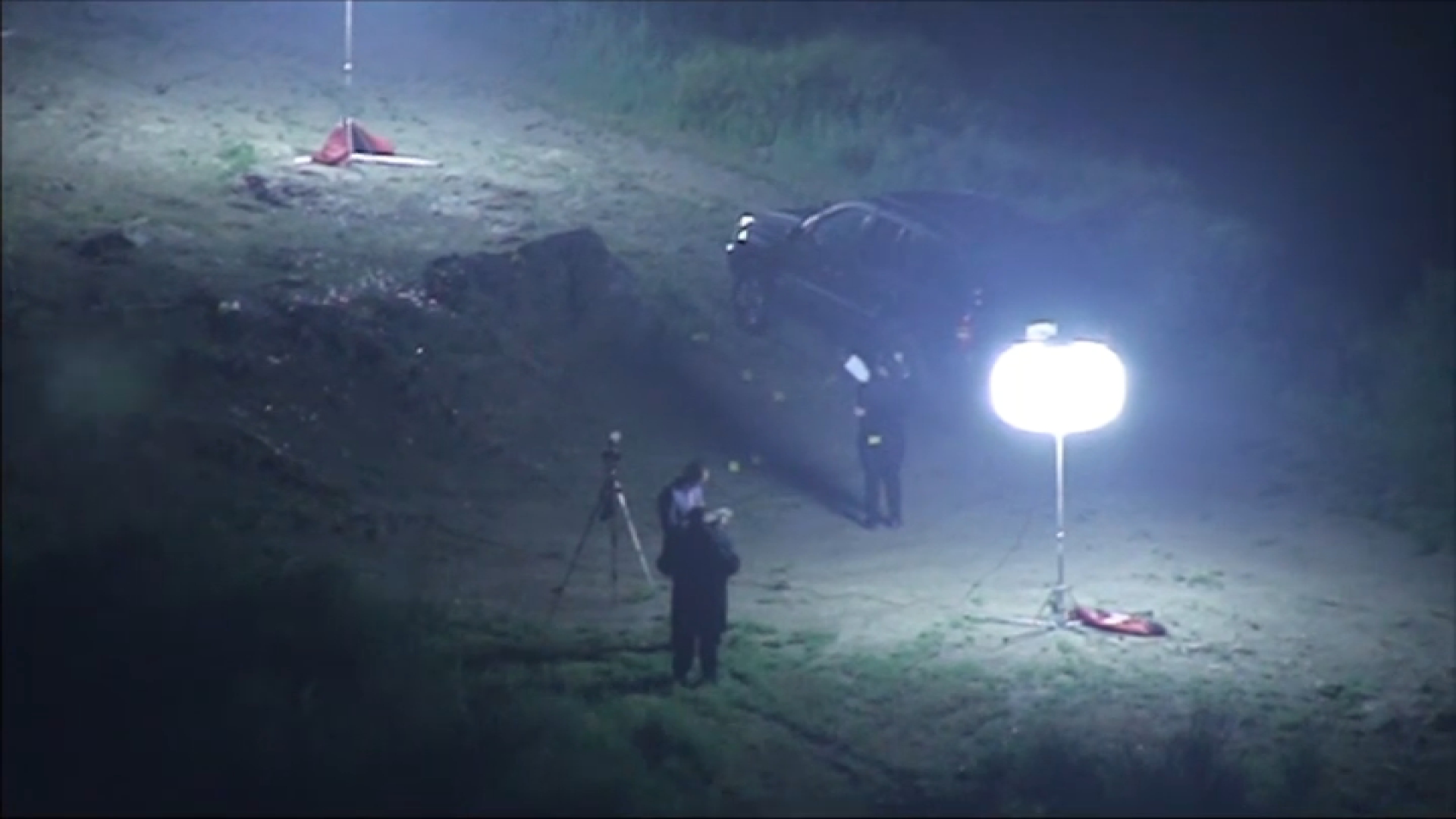What to Know
- The ex-sheriff is charged with conspiring to commit and committing obstruction of justice
- Baca also is scheduled to face a second trial on charges of making false statements to the FBI
- Baca did not testify at the trial
Former Sheriff Lee Baca "authorized and condoned" an internal conspiracy to thwart a federal probe into civil rights abuses in Los Angeles County's jail system, a prosecutor told jurors Monday during closing arguments in the ex-lawman's corruption trial, but a defense attorney threw blame on Baca's former second-in-command.
In his summation, Assistant U.S. Attorney Brandon Fox told the six-man, six-woman jury that during Baca's 16 years as sheriff, he "abused the power given to him by the people of Los Angeles County" by ignoring evidence of brutality against jail inmates and working to ensure "dirty deputies" were not brought to justice.
"He wanted to ensure that no outside law enforcement would police the jails -- because, as he said, 'I'm the G.D. sheriff,'" Fox said. During nearly two weeks of trial, jurors heard accusations that Baca conspired to commit and committed obstruction of justice during a six-week period in August to September 2011.
He will be tried separately at a later date on charges of making false statements to the federal government in April 2013. Prosecutors contend Baca lied to the FBI about his knowledge of department efforts to subvert the federal grand jury's attempt to investigate corruption and inmate abuse in the jail system. Fox said he presented jurors with "an overwhelming amount of evidence" to show that Baca was "the heartbeat of this conspiracy." Defense attorney Nathan Hochman countered that it was former Undersheriff Paul Tanaka who was to blame for the department's actions.
The then-sheriff "was not the driving force -- Undersheriff Paul Tanaka was," Hochman said. "Unbeknownst to Sheriff Baca at the time." The lawyer told the panel that the government had "completely failed" to prove its case and had included graphic testimony of jail violence "to poison your mind" against his client. Baca, 74, listened intently, an impassive expression on his face during about four hours of attorneys' closing arguments. Prosecutors rested their case on Thursday, and the defense called a parade of witnesses Friday -- including former district attorneys Ira Reiner and Steve Cooley -- to speak on his behalf.
Baca was not called to the stand. Jurors began deliberating after lunch and met for about three hours without reaching a verdict. The panel will resume its deliberations Tuesday. U.S. District Judge Percy Anderson previously said that the jury will be working from 8 a.m. until 3:30 p.m. daily until a verdict is reached. The judge split the trial into two parts after he agreed to allow testimony by an expert on dementia -- but only as it relates to the false- statements charge.
News
Top news of the day
Anderson agreed to hold a separate trial on those counts so the jury could hear the medical testimony. Baca is in the early stages of Alzheimer's disease. The charges focus on a period of time five years ago when sheriff's deputies based at the Men's Central Jail stumbled upon the FBI's secret probe of alleged civil rights abuses and unjustified beatings of inmates within jail walls.
After guards discovered that inmate Anthony Brown was secretly working as an FBI informant, they booked him under false names and moved him to different locations in order to keep him hidden from federal investigators. They also went to the home of an FBI agent and threatened her with arrest. Leah Tanner, the case agent on the FBI's civil rights investigation into excessive force and corruption among jail deputies, testified that on Sept. 26, 2011, two sheriff's investigators confronted her in the driveway leading into her apartment and told her that they were in the process of obtaining a warrant for her arrest.
Prosecutors contend Baca so resented the federal government's probe that he attempted to force the FBI to back down by illegally having deputies confront Tanner. Baca denies knowing in advance of the attempted intimidation of Tanner and claims Tanaka set the plan in motion. Hochman told the jury Monday morning that the sheriff's department and the FBI were similar to "two brothers having a pushing match in a sandbox" during the period of time at issue.
"The government calls this six weeks in the sandbox `a conspiracy to obstruct justice,"' the defense attorney said, adding that following a heated meeting between the agencies, "they all shake hands and leave as brothers in arms."
Nine ex-sheriff's officials -- including Tanaka -- have been convicted or pleaded guilty in connection with the obstruction case, and 10 others have been convicted of various charges connected to the overall federal probe.
Tanaka, who alleges Baca initiated the plan, was sentenced to five years in prison and is expected to begin serving his time next month. Baca previously backed out of a plea deal on the lying count -- which called for him to serve no more than six months in prison -- after the judge rejected the agreement as too lenient. If Baca had not withdrawn from the plea, he could have been handed a sentence of five years behind bars. He was subsequently indicted on the three felony counts he now faces, and he could face up to 20 years in prison if convicted of all charges.
Although Baca admitted in court to lying to investigators, that and other previous admissions cannot be used against him in the current case. Baca retired suddenly in 2014 at the height of the federal probe. He had been sheriff since December 1998. A federal appellate panel upheld the convictions of seven former sheriff's department officials convicted in the conspiracy.



